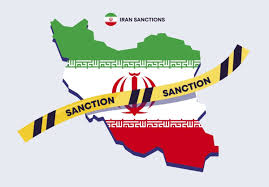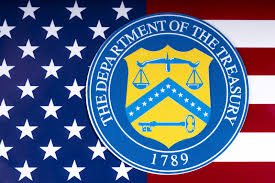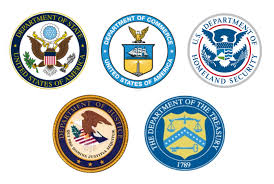“The New FCPA”: The Future Landscape of Sanctions Enforcement (Part II of IV)

“This is a very complicated case, Maude. You know, a lotta ins, a lotta outs, a lotta what-have-yous. And, uh, a lotta strands to keep in my head, man. Lotta strands in old Duder’s head.” — The Big Lebowski
We are all familiar with — over and over — third-party risks and FCPA risks. It is drilled in our collective heads — third-party risks and bribery.
Legal and compliance professionals have to learn and understand the ins and outs of sanctions legal risks and enforcement, especially with respect to third-party risks. Or to put it in The Big Lebowski terms — “lotta ins, a lotta outs.”
Global companies face significant sanctions risks in their distribution channel (go-to-market) and supply chains. A comprehensive risk assessment governing a company’s distribution channel and supply chain is essential to assess, monitor and manage risks. As OFAC has explained, companies should conduct a “holistic review of the organization from top-to-bottom and assess its touchpoints to the outside world,” including but not limited to their distribution channels, supply chains, global locations, transactions, intermediaries and counter parties.
A company that distributes products or sources materials involving a prohibited party or country, can be held liable under existing sanctions regimes. To mitigate these distribution or supply chain risks, companies should carefully identify geographic locations of distributors and suppliers, and proximity to prohibited countries or entities, to assess the specific product or service sanctions risks.

The DOJ and OFAC have emphasized the importance of counter-party screening and identification of beneficial owners of corporate entities to identify and disrupt sophisticated evasion schemes that are being employed by sanctions targets. To underscore this point, the DOJ—in concert with the Commerce and Treasury Departments—issued a Joint Compliance Note (“JCN”) to reiterate to companies the need to implement a screening program for customers, intermediaries and counterparties. Department of Commerce, Department of the Treasury, and Department of Justice Tri-Seal Compliance Note: Cracking Down on Third-Party Intermediaries Used to Evade Russia-related Sanctions and Export Controls (Mar. 2, 2023) (hereinafter, “JCN”).
Companies rely on robust distribution chains as an efficient mechanism to enter new markets without requiring a significant investment. Sanctions liability, like anti-bribery liability, can occur when a company relies on third parties who then violate sanctions prohibitions.
The classic case — Company A sells its product to Distributor B who resells the product to Customer C in Iran. Is Company A always liable for that sale to Customer C in Iran?
Epsilon Electronics
The case of Epsilon Electronics, Inc. v. United States Department of Treasury (D.C. Cir. 1:14-cv-02220, May 26, 2017) answers this important question. In reviewing an OFAC enforcement action, the U.S. Court of Appeals affirmed in part (34 transactions) and reversed in part (OFAC’s finding of five post-cautionary letter violations) OFAC’s and the District Court’s decision affirming OFAC’s enforcement action against Epsilon electronics, a subsidiary of Power Acoustik.
OFAC began investigating Epsilon in 2011, when OFAC learned about a 2008 shipment from Epsilon to an address in Tehran, Iran. OFAC issued a warning letter to Epsilon as a result of this investigation.
Later, in 2011, OFAC learned that Epsilon had received multiple wire transfers from a Dubai bank, made on behalf of Asra International. OFAC examined Asra’s website, which referenced the company’s success in the Iran market, listed dealers located in Iran, and displayed photos from trade shows in various Iranian cities. Some of these photos appeared on Epsilon’s US-website. OFAC then initiated an investigation.

In May 2012, OFAC sent Epsilon another administrative subpoena, requesting further details on the company’s transactions with Asra and with Iran. Epsilon produced invoices for 34 transactions with Asra, and five additional transactions that occurred during February to May 2012, which were destined for Dubai and not Iran. OFAC imposed a penalty of over $4 million. Epsilon claimed that it did not have any knowledge or reason to know that Asra distributed Epsilon’s products in Iran.
In rejecting Epsilon’s challenge to OFAC’s enforcement action, the Court of Appeals articulated the standard for liability when an exporter distributes its product through a third-party — when an exporter has “reason to know” that goods are specifically intended for reexport to a prohibited customer (in Iran), the exporter is liable. Interestingly, the Court of Appeals specifically held that OFAC need not prove that the goods ultimately ended up in Iran, and instead noted that liability attaches once the exporter acts with the prohibited state of mind.
The Court of Appeals explained that an exporter has taken all the steps he must take to put goods in transit to Iran, and the goods are then out of his control — no other actions are required to violate OFAC’s regulations barring exports to Iran. The arrival of the goods is a “result” of his “voluntary conduct,” not part of the conduct itself, and thus is not a component of the “act” of exportation.

The Court of Appeals further stated that the “reason to know” standard can be satisfied “through a variety of circumstantial evidence,” including “course of dealing, general knowledge of the industry or customer preferences, working relationships between the parties, or other criteria far too numerous to enumerate.”
In affirming OFAC’s finding that Epsilon had “reason to know” that the shipments to Asra were destined for an Iran customer, the Court of Appeals cited the fact that Asra distributed exclusively to Iran as late as December 2011, Asra’s website referenced its affiliate in Iran, listed only two contact locations, one in Dubai and one in Iran, its website touted its 10-years of experience in Iran, and its website included a list of dealers located in Iran.















